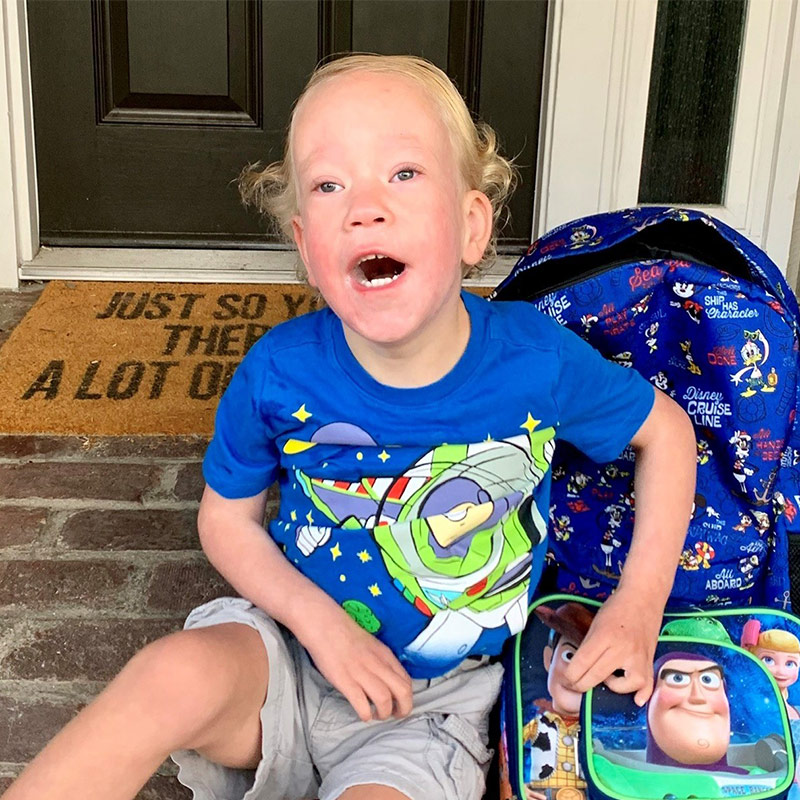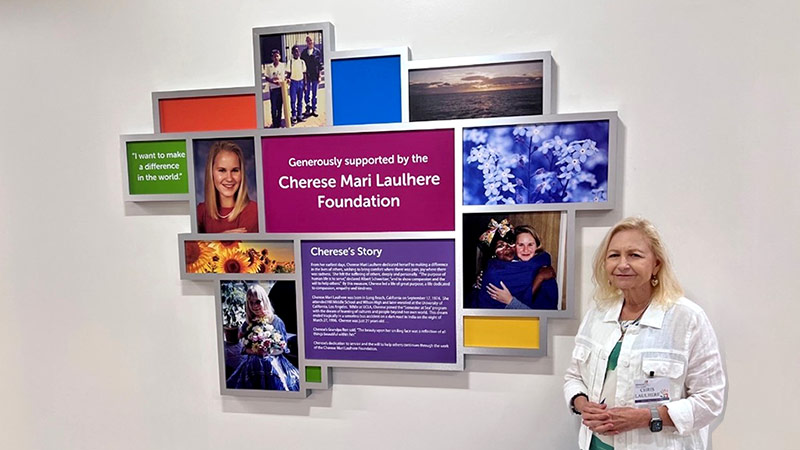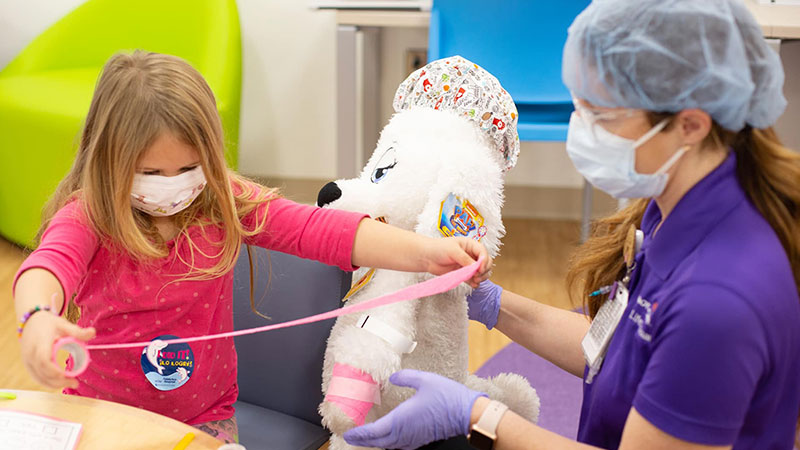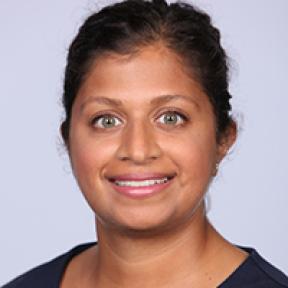Before he was born, Shelby Reed’s son was given a complex and rare diagnosis, partial trisomy 16p — a disorder where genetic material is duplicated within chromosome 16. For many children, like John, partial trisomy 16p means having abnormal cranial and facial features, as well as developmental delay in language processing and motor skills. Because John’s condition could have potential complications, Shelby knew that he would need the specialized pediatric care that only a children’s hospital can provide.
Once John was born in May 2016, he was diagnosed with additional medical conditions, including dysphagia, hypertonia, autism and kidney disease. Though John was receiving care for his conditions at another pediatric health care center, he eventually found his medical home at MemorialCare Miller Children’s & Women’s Hospital Long Beach, where he received care for his ongoing health conditions.
As he grew, John developed issues with his ears and throat common in children with craniofacial conditions. He couldn’t enjoy normal daytime activities because he suffered from chronic ear infections, excessive drooling and difficulties swallowing, hearing and speaking. These conditions led to further developmental delays. John’s craniofacial skeleton led to sleep apnea, a condition where the muscles in the back of the throat block airflow and affect breathing. John’s symptoms required the help of an otolaryngologist (ear, nose and throat (ENT) specialist).
In September 2019, Shelby and John returned to Miller Children’s & Women’s after being referred to pediatric otolaryngologist, Rose Eapen, M.D. John underwent extensive testing while in Dr. Eapen’s care to determine how his chromosomal abnormality was contributing to his delayed speech, difficulty swallowing and sleep dysfunction.
Because sleep apnea is caused by airflow obstruction in the throat, Dr. Eapen arranged a sleep study to understand how John’s cranial and facial features were contributing to the blockage. However, further testing was needed to ensure that John received the best treatment possible.
Dr. Eapen performed a laryngoscopy to learn more about John’s throat and to understand his difficulty swallowing. A laryngoscopy is an exam conducted by ENT specialists to view the larynx and throat using a small scope. In addition, Dr. Eapen recommended salivary gland Botox™ to control his excessive drooling. An injection would reduce gland activity and saliva production. Dr. Eapen also recommended a tonsillectomy to remove the tonsils and adenoids causing John’s swallowing difficulty and sleep apnea. The surgery would effectively reduce the blockage in John’s throat by opening the airway.
John underwent these procedures in January 2020 at the Surgical Center at Miller Children’s & Women’s, a state-of-the-art center equipped with seven operating rooms designed just for kids, a pre-operative playroom and a team of child life specialists who help lessen the fears and worries of patients and their parents through support. Though John spent weeks in recovery, the surgery was successful in treating his sleep apnea and swallowing difficulties.
Dr. Eapen also set out to resolve John’s persistent ear infections. Children with craniofacial differences commonly have abnormal eustachian tube function that contributes to recurrent ear infections.
“Because John has partial trisomy 16p, his ear canals are narrow and curved at certain points,” says Shelby. “Dr. Eapen determined that an ear tube would work around this issue.”
Ear tube placements create a pathway to the middle ear for ventilation and fluid drainage. Once John’s ear tube was inserted, he experienced immediate relief.
“After treatment, John instantly became interactive and his development increased,” says Dr. Eapen. “About two to three weeks after his tonsil surgery, he was speaking, showed no signs of infection, and improved his drooling and sleeping.”
Now 3-years-old, John is able to enjoy quality time with his family and attend preschool.
“The quality of care we received at Miller Children’s & Women’s was wonderful,” says Shelby. “Children with complex medical needs — like John — are given an extra level of care and attention by nursing staff and doctors. The care teams truly listen to parents and the needs of their children. It was important to our family that John was treated at Miller Children’s & Women’s for this reason.”
Learn more about Dr. Rose Eapen and how to make an appointment with her.





